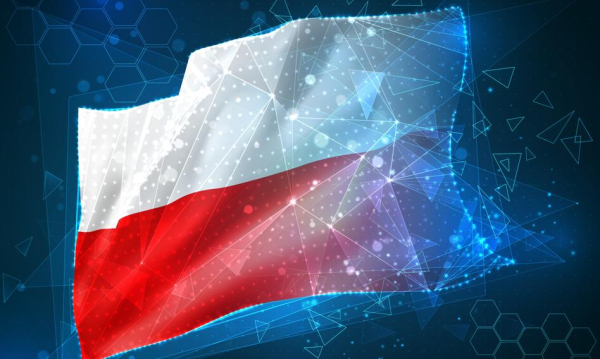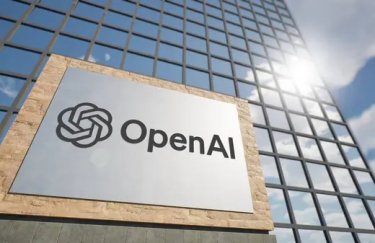Poland may soon join the ranks of world leaders in the field of artificial intelligence – experts estimate and emphasize that this is possible within two to three years. However, it is important to quickly take action in this direction as a country. In this context, the update of the “Artificial Intelligence Development Policy in Poland” and the launch of the Artificial Intelligence Development Fund, which despite earlier announcements has not yet been created, are gaining importance. Poland's main resource are AI specialists.

– As Poland, we have a chance to join the global leaders in the field of artificial intelligence, but we have to do it as soon as possible – we have to make the right decision as a country. We no longer have a chance to compete with the largest, we also do not have the resources and potential of the United States or China, but our great chance and potential is that we have great scientists and AI experts in Poland – says Joanna Szczegielniak, president of the Connecting the Future foundation, to the Newseria agency during the Women in Tech Summit 2025 conference.
– They are conquering the world, but we want to bring them back here so they can work for our country. If we choose well-defined areas of specialization, then we have a chance to become a world leader in two or three years. Artificial intelligence is a very young field and it is developing rapidly, so we have such a chance.
The Ministry of Digital Affairs also sees such opportunities, which at the beginning of June this year published a draft of the new “Artificial Intelligence Development Policy in Poland until 2030” and made it available for public consultation (they will last until July 1, 2025). According to the ministry, by 2030 Poland should be among the 10-20 most advanced countries in the world in AI rankings (Tortoise AI Index, Stanford HAI, Government AI Readiness Index). The new AI policy assumes, among other things, a strong AI ecosystem – combining science, administration, business and civil society in order to create legal, technological, financial and educational conditions that will enable the development of AI based on cooperation and trust. In addition, the ministry wants to focus on the development of competences, support for research and implementation, as well as investment in talent, and thus increase productivity and create new jobs.
See alsoHow artificial intelligence will affect the work of accountants
– We really need a national “Artificial Intelligence Development Policy in Poland”. The last one was established in 2020, and a lot has changed since then, this is the era before ChataGPT – emphasizes Joanna Szczegielniak. – This is a road map for our development, so we need it very urgently.
As indicated in the new project, the basis for growth in the AI area is the development of competences, support for research and implementation, and investment in talent. The document assumes support for the education of specialists and the broad use of artificial intelligence in strategic sectors to increase productivity and create new jobs.
– We are one of the best European countries that provide very good education in exact sciences. An example of this is our successes in the international arena in mathematical and artificial intelligence olympiads. Poland has been winning these competitions for 30 years, so this already shows how much potential we have in this area – emphasizes the president of the Connecting the Future foundation.
For example, last year at the International Artificial Intelligence Olympiad in Bulgaria (IOAI 2024), the Polska Południe team (made up of students from schools in Wrocław and Rzeszów) found itself on the podium with two gold medals. The second team, Polska Północ, won two bronze medals. Also at last year's 63rd International Mathematical Olympiad in Oslo, young mathematicians won four silver and two bronze medals for Poland. This is the most prestigious mathematics competition for high school students.
– In order to join the ranks of global leaders in the field of artificial intelligence, we need a lot of support from the public sector, from the government. It should be an umbrella for the entire development, where through a system of incentives, various types of programs, it will stimulate the development of both science and business. A platform for cooperation between business and science should be created and then we will really have additional power to become one of the global players – assesses Joanna Szczegielniak.
In her opinion, the long-announced artificial intelligence development fund should be established as soon as possible, given that we lag far behind other countries in terms of funds allocated for this purpose.
– Other countries have had funds for the development of artificial intelligence for many years, unfortunately we are still at the planning stage. This should change as soon as possible, because the world will not wait for us, now is our moment, a time so important for Poland historically, because we have such an opportunity now for the first time in 230 years, so since the partitions. If we do not use it now, it will be very difficult later – explains the president of the Connecting the Future foundation.
The project of the Ministry of Digital Affairs shows that, according to the analysis of the Polish Economic Institute, the Working Group for Artificial Intelligence at the Ministry of Digital Affairs (GRAI) and other reports and strategic documents, today the greatest potential for the development of artificial intelligence and implementation in Poland is demonstrated by the economic sectors in the area of: energy, e-commerce, dual-use products, cybersecurity, BioMedTech, financial services and transport, forwarding and logistics.
The authors of the “Polityka…” emphasize that a dedicated sectoral policy will be developed for each of these sectors in cooperation with the Ministry of Development and Technology and the relevant ministries. Such documents will include, among others, an analysis of the needs of a given sector in the area of AI implementation, an indication of specific areas where AI can bring the greatest value in a given sector, a definition of the framework for sharing data between stakeholders in a given sector, and support instruments for the development and implementation of AI in a given sector.






